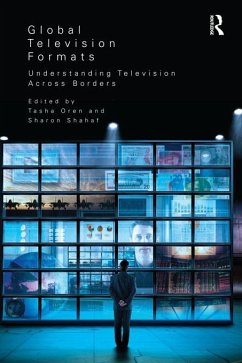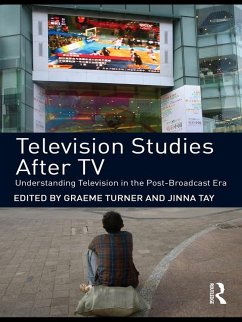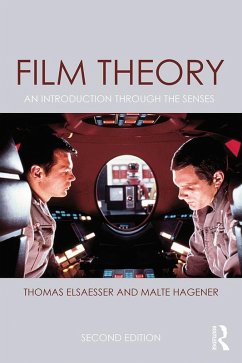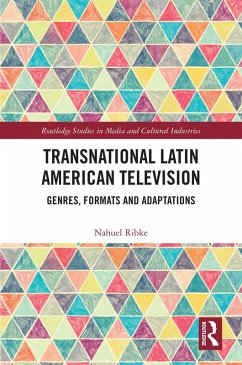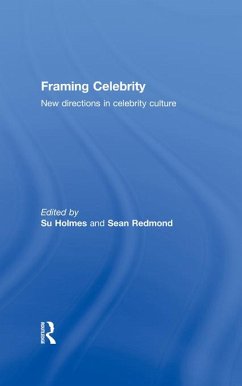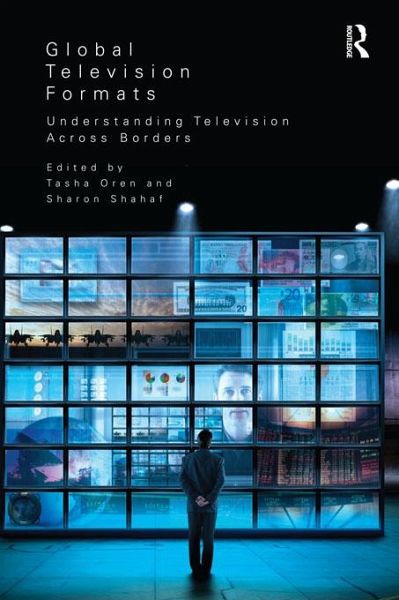
Global Television Formats (eBook, ePUB)
Understanding Television Across Borders
Redaktion: Shahaf, Sharon; Oren, Tasha
Versandkostenfrei!
Sofort per Download lieferbar
54,95 €
inkl. MwSt.
Weitere Ausgaben:

PAYBACK Punkte
27 °P sammeln!
Winner of the 2013 SCMS Best Edited Collection AwardFor decades, television scholars have viewed global television through the lens of cultural imperialism, focusing primarily on programs produced by US and UK markets and exported to foreign markets. Global Television Formats revolutionizes television studies by de-provincializing its approach to media globalization. It re-examines dominant approaches and their legacies of global/local and center/periphery, and offers new directions for understanding television's contemporary incarnations.The chapters in this collection take up the format phen...
Winner of the 2013 SCMS Best Edited Collection Award
For decades, television scholars have viewed global television through the lens of cultural imperialism, focusing primarily on programs produced by US and UK markets and exported to foreign markets. Global Television Formats revolutionizes television studies by de-provincializing its approach to media globalization. It re-examines dominant approaches and their legacies of global/local and center/periphery, and offers new directions for understanding television's contemporary incarnations.
The chapters in this collection take up the format phenomena from around the globe, including the Middle East, Western and Eastern Europe, South and West Africa, South and East Asia, Australia and New Zealand, North America, South America, and the Caribbean. Contributors address both little known examples and massive global hits ranging from the Idol franchise around the world, to telenovelas, dance competitions, sports programming, reality TV, quiz shows, sitcoms and more. Looking to global television formats as vital for various cultural meanings, relationships, and structures, this collection shows how formats can further our understanding of television and the culture of globalization at large.
For decades, television scholars have viewed global television through the lens of cultural imperialism, focusing primarily on programs produced by US and UK markets and exported to foreign markets. Global Television Formats revolutionizes television studies by de-provincializing its approach to media globalization. It re-examines dominant approaches and their legacies of global/local and center/periphery, and offers new directions for understanding television's contemporary incarnations.
The chapters in this collection take up the format phenomena from around the globe, including the Middle East, Western and Eastern Europe, South and West Africa, South and East Asia, Australia and New Zealand, North America, South America, and the Caribbean. Contributors address both little known examples and massive global hits ranging from the Idol franchise around the world, to telenovelas, dance competitions, sports programming, reality TV, quiz shows, sitcoms and more. Looking to global television formats as vital for various cultural meanings, relationships, and structures, this collection shows how formats can further our understanding of television and the culture of globalization at large.
Dieser Download kann aus rechtlichen Gründen nur mit Rechnungsadresse in A, B, BG, CY, CZ, D, DK, EW, E, FIN, F, GR, HR, H, IRL, I, LT, L, LR, M, NL, PL, P, R, S, SLO, SK ausgeliefert werden.




